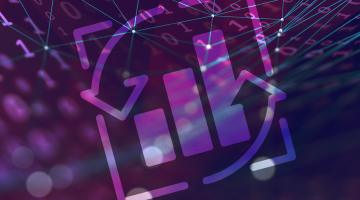Key Takeaways
- DTW 2022 emphasized the importance of face-to-face meetings for business innovation and collaboration.
- Standardized APIs are poised to disrupt the telco industry by creating a level playing field and shifting power towards operators.
- 5G monetization remains a challenge, with telcos hesitant to invest in use cases without guaranteed ROI, requiring a shift to a ‘fail-fast and pivot’ approach.
- Companies are struggling to move away from legacy systems due to years of investment and the difficulty of reverse engineering poorly documented functionality, requiring a significant ’10x’ event to justify replacement.
- Virtualization and technologies like Kubernetes have pushed the industry towards standardized commodity hardware, raising the question of why standardization should not extend to APIs as well.
My colleagues and I just got back from TM Forum’s Digital Transformation World (DTW) 2022 in Copenhagen. It was the first in-person DTW in three years and my first time attending. If you’ve never been, it’s kind of like a boutique Mobile World Congress (MWC).
Perhaps the most noticeable thing about this conference was how everyone in our party kept bumping into people they knew, which is exactly the kind of serendipity that makes these types of events special. We were all very busy, though, and if DTW has a flaw it’s that it’s a day too short.

FROM LEFT: DAVID FLOWER (CEO), PAUL FARMER (GLOBAL SENIOR VP), JENNIFER BRUNSDEN (SALES DIRECTOR), ANDREW KEENE (SENIOR DIRECTOR OF PRODUCT MANAGEMENT), DAVID ROLFE (SENIOR DIRECTOR OF PRODUCT MARKETING), BIPLAB BANERJEE (PRE-SALES AND CUSTOMER SUCCESS CONSULTANT).
Table Of Contents
Major (But Not Necessarily Surprising?) Trends
There’s something about the way trends tend to pop up in the tech world: suddenly they’re here and everyone’s talking about them as if they’re new, but really they’ve been brewing for a long time, and those of us who are in the “trenches”, so to speak, have been dealing with them—or seeing them having to be dealt with—for years already.
The trends I saw being discussed at DTW were certainly of this nature, although there were certain elements of each that are worth digging into for how they portend to shape the way things get done over the next couple of years.
1. STANDARDIZED APIS (COMING SOON)
Although APIs in and of themselves were never the designated, front-and-center topic of any of the chats I attended at DTW, they kept coming up. And now, having had time to think about things a bit since the conference ended, I think we might be about to see a significant change in the industry.
I’m talking about standardized APIs.
For a long time, APIs have been perceived (rightly or wrongly) as the stuff of “architecture astronauts” and not as something that could impact anyone’s bottom line any time soon,
However, I think there’s a real chance APIs will seriously disrupt telco and other standards-driven industries in the years to come.
Why?
Prior to virtualization, telco lived in a world where every deployment had a “bill of materials”, a laundry list of part numbers and components that required specialist skills to set up and integrate, which meant senior personnel flying within, across, and between continents to spend time at customer sites, sometimes for weeks.
Virtualization and technologies such as Kubernetes brought this to an end and have forced the industry to move to standardized commodity hardware.
But why stop at hardware?
3GPP standards already define all manner of things in precise detail, although until now we’ve lived in a world where vendors dodge and dive and sometimes interpret them creatively. Ultimately this increases operator costs. Having standardized APIs means having a more level playing field where it’s much easier to make ‘apples-to-apples’ comparisons.
Making vendors compete at the API level will shift the balance of power away from vendors and system integrators and towards the operators. Walking the floors of DTW2022 made this obvious that there are clear signs of traction with the TM Forum APIs, and support from mega-operators such as Vodafone suggests that while the software industry as a whole may be at ‘peak hype’ for APIs in general, telco may be where they become universal and revolve around the TM Forum-specific ones.
2. 5G MONETIZATION (STILL NOT THERE)
5G monetization remains distressingly in the future tense.
The telco industry desperately wants to move forward with it, but finds it hard to do so and is mostly very slow and cautious.
With things like virtualization and Kubernetes bringing an enterprise-level investment shift from CapEX OpEx, there’s an understandable reluctance to make big up-front investments in 5G use cases that may or may not be profitable.
As a consequence, telco is still looking for standalone global 5G use cases that will provide genuine ROI. But many of these proposed use cases depend on scalability to work, which puts us into a classic “chicken or the egg” situation. Until telcos are willing to adopt the same “fail-fast and pivot” approach that’s made so many over-the-top media services providers successful, this won’t change.
3. (THE CHALLENGE OF) MOVING ON FROM LEGACY SYSTEMS
Most companies now have a strong desire to transition away from legacy systems to ones that bring in new capabilities for the business. But with so many years of investment and business process baked into these legacy applications and their staff’s day-to-day roles, the pain and effort (both human and technical) to make this transition can sometimes appear insurmountable.
There’s also the unfortunate fact that lots of these older systems contain esoteric, poorly documented functionality that would need to be extensively reverse engineered to be replaced.
Nobody questions the value of breaking up large, monolithic applications into smaller, nimbler microservices and the power of automating the management of these applications. Cloud-native architectures, Kubernetes orchestration, and open APIs (to integrate the various microservices) are being roundly adopted beyond traditional IT functions and are here to stay. But at the end of the day, I still see companies struggling to justify spending time and energy replacing systems that work, even if they are archaic. As a rule, there has to be some kind of ‘10x’ event — ie, 10x the difference in operational costs compared to a new system or a 10x increase in data volumes that legacy systems will never cope with—before the inertia is finally overcome and legacy system replacement moves to the front of the to-do list.
CONCLUSION
Of all the in-person events I’ve attended in the last year, DTW was by far the most productive and social, and if there’s one primary takeaway from DTW2022 it’s this: the (continued) importance of face-to-face meetings and interaction for business innovation and evolution. If things like API standardization, 5G monetization, and legacy migrations are really going to take hold, they’re going to, above all, require collaboration (at the departmental, team, and personal levels). Collaboration requires great communication, and great communication requires in-person meetings. Sorry Zoom — you’re still valuable, but nothing can replace good old fashioned face-to-face interaction.




